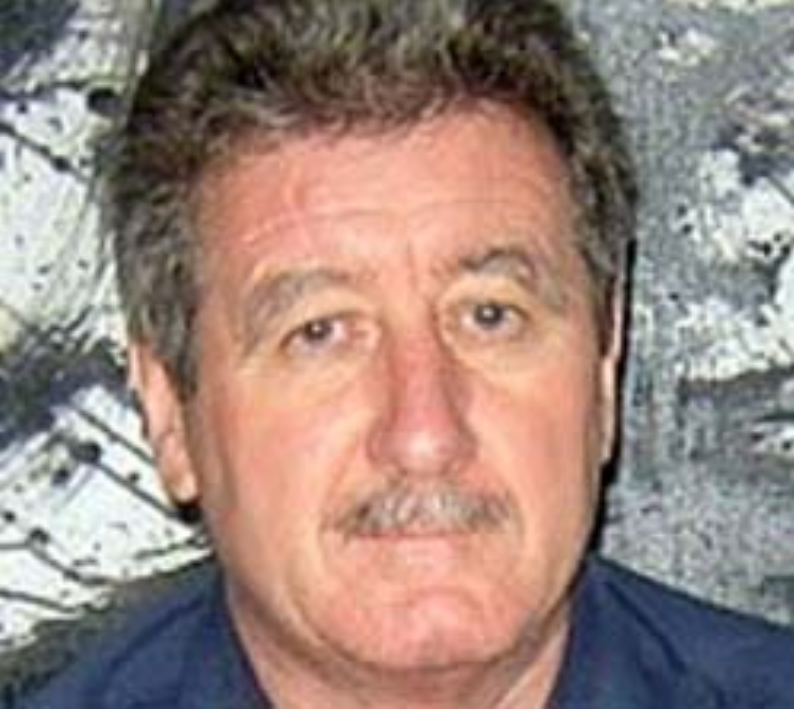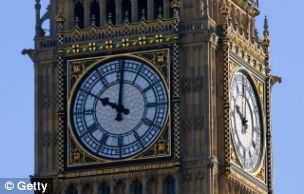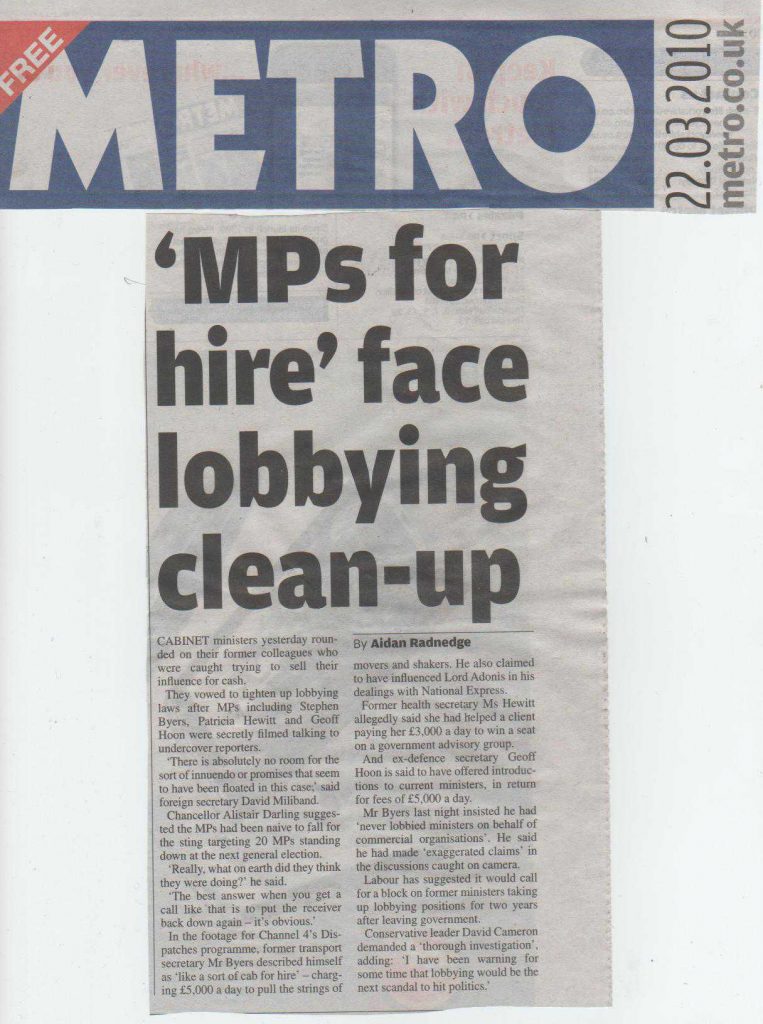 Thousands of articles are posted on the internet every day. But, very few make us fall off our chairs!
Last week I came across a shocking news item posted by the Turkish Forum — the largest website for Turkish news. It was titled: “Forgotten Ambassador in Sierra Leone Uses Armenian Genocide Resolution to solve his Problem.” Here is the summary in translation of that incredible article:
“In recent years, parliaments of several countries have adopted resolutions on the Armenian Genocide. In retaliation, Turkey has recalled its ambassadors from these countries. It has been revealed that some opportunistic ambassadors exploited this situation, by abusing their position.
“According to a Foreign Ministry announcement this morning, Orhan Emin Turkone, Turkey’s Ambassador in Sierra Leone for the past 12 years, has been fired for having lobbied for the passage of the Armenian Genocide bill in that country’s Parliament.
“During a press conference this morning, the Foreign Ministry’s Undersecretary Ersin Ozbukey explained: ‘Recently, it came to our attention that the so-called Armenian Genocide bill was placed on the agenda of the Parliaments of Chad, Eritrea, and Djibouti. But, when we saw that this bill was unanimously adopted by the Parliament of Sierra Leone, we started suspecting that something had gone terribly wrong.’ Ozbukey added: ‘We formed an investigative committee that uncovered some interesting, but disturbing information.’
“’We confirmed that Amb. Turkone had carried out lobbying activities in favor of the Armenian Genocide bill,’ Ozbukey stated. ‘Of course, this can’t be excused, but the Ministry also has its fault in this affair. This man was abandoned and forgotten in a far away country. He got that idea, after [Turkish] Ambassadors were recalled following the adoption of the genocide resolution by other countries. Twelve years is a long time,’ Ozbukey admitted.
“Ozbukey then provided the details of Amb. Turkone unbelievable actions in publicizing the Armenian Genocide in Sierra Leone. Ozbukey said that whenever the Ambassador visited a bar, he would write on facebook: ‘We massacred the Armenians in such a nasty way.’ He told bartenders: ‘My grandfather alone killed 100-150 Armenians whose bones are in the basement of our home.’ The Ambassador made up such falsehoods and lies. He basically said whatever came to his head. Sierra Leone is a small place. Word spreads quickly. No one had ever heard of either Armenia or Turkey. But, within a month, everyone in the whole country was agitated over this issue. People were dancing in the streets when they learned that the genocide was recognized. This shouldn’t have happened, but unfortunately, it did!
“Ozbukey explained that after this revelation, the Turkish government started paying more attention to the agenda of various parliaments. In order to avoid such situations in the future, instead of recalling ambassadors, ‘we are now considering the possibility of cutting off trade relations, until the resolution is removed from the Parliament’s agenda,’”
Even though this article sounded too good to be true, the amount of detail and specific names mentioned in it led dozens of Turkish websites to post it, without realizing that it was a hoax! After learning that Turkey did not have an embassy in Sierra Leone, the Turkish Forum deleted the fake news from its website. It was also not true that Armenian Genocide resolutions were being considered by parliaments of Chad, Djibouti and Eritrea in recent months.
It is not known who concocted this elaborate hoax. Given the extensive amount of criticism directed at Prime Minister Erdogan within Turkey in recent weeks, the author could well be a disgruntled Turk with a sense of humor who decided to take a sarcastic swipe at his Don Quixotic leader. The article was accompanied by an authentic looking photo of three African officials along with a non-African individual at a signing ceremony. The photo gave the false impression that the latter was the Turkish Ambassador to Sierra Leone.
It is not at all surprising that several Turkish websites fell for this ruse, as the government of Turkey has made a practice of recalling its ambassadors from France, Canada, the United States, and other countries for having recognized the Armenian Genocide.
Namik Tan, the newly appointed Turkish ambassador to Washington, was recalled on March 4 after the House Foreign Affairs Committee approved the Armenian Genocide resolution. It was reported that he might stay in Ankara until after April 24. This is great news for Armenian-American activists, as they can lobby Congress without facing any opposition from the Turkish Ambassador during the crucial weeks leading to April 24, when he needs to be in Washington trying to block the Genocide Resolution in the House and persuade Pres. Obama not to refer to the Armenian Genocide in his annual statement!
To the best of our knowledge, Amb. Tan did not lobby Congress for passage of the Armenian Genocide resolution, as did the fictional ambassador in Sierre Leone, in order take an extended vacation with family and friends back home. However, judging from Prime Minister Erdogan’s recent self-defeating statements, sometimes truth is indeed stranger than fiction!
|
Category: Main Issues
-

Did Turkey’s Ambassador Really Lobby For Passage of Genocide Resolution?
-

Andrew Dismore AND Armenian Genocide Remembrance Day Bill 2009-10
Andrew Dismore
Labour MP for Hendon
Andrew Dismore,
Armenian Genocide Remembrance Day Bill 2009-10
in sponsoru… TF olayın ensesinde! ☾✫https://www.turkishnews.com/en/content/2010/03/22/scandal-mps-caught-trying-to-sell-their-influence-for-cash/Saygilar, hürmetler…
Haluk Demirbag— On Mon, 3/22/10, H Savas ( wrote:)Toplantiya katilan Esin Hanim’onemli bir bilgisi (Andrew DIsmore ile ilgili)
HalukTel: 07770302822
Haluk, cok onemli bir BBC haberi. Dismore’un Cyprus baglantilarini acikliyor!
esin
————————————————————————-
———————-http://news.bbc.co.uk/1/hi/uk_politics/8580183.stm
Dismore’la ilgili bolum:
“… The rules on overseas visits are there to ensure that no-one canaccuse MPs of accepting foreign hospitality in return for politicalfavours, for example pressing the UK government for financialassistance.
They require MPs to register such visits and then declare relevant trips in questions, motions or debates.
Oneof those who appears to have fallen foul of the code of conduct isLabour’s Andrew Dismore, a member of the Commons Standards andPrivileges Committee – the very body which polices MPs’ behaviour.
Hebroke rules more than 90 times, following annual visits to Cyprus, byfailing to declare the hospitality when raising issues about the islandin Parliament.
In total, he has tabled more than 200 Commonsquestions about Cyprus since the last election in 2005, on topics suchas missing persons from the island and its victims of past conflictbetween Turkey and Greece.
The Commons information office estimates it costs on average £149 to answer a written question.
MrDismore has also signed motions and led debates about Cyprus. However,he denies any wrongdoing and claims his questions about Cyprus were notsufficiently relevant to his trips to require a declaration….” -

Turkey needs to calm down on the Armenian issue
Monday, 22 March 2010Dr. Faruk Logoglu , Buyukelci (E), Turkish forum danisma kurulu Uyesi
The Turkish government’s attitude and response to recent developments in the United States and Sweden regarding Armenian claims are off the mark and counter-productive. Without a counter-strategy, Turkey is closing down its shutters and painting itself into a corner.
Moreover, the Justice and Development Party, or AKP, leadership, by arguing and exploiting the issue domestically, is making a mistake because it could backfire. The current approach, if not altered soon, may hurt our national standing and interests.
The Turkish contestation and protests of American and Swedish decisions on Armenian claims are certainly justified because parliamentary bodies have no business or competence in legislating history. However, the official reaction by Turkey, heavily laden with anger and resentment, is self-damaging and dysfunctional.
Recalling our ambassadors for consultations is a legitimate exercise and quite appropriate. Yet not sending them back until and unless certain conditions are met is another thing entirely and serves no useful purpose.
Other countries, including Russia and France, took similar decisions in the past, a considerable number of them during the time AKP had been in power. Indeed, the same House Committee in the U.S. had approved similar resolutions twice before in the last five years. The reactions then were more measured and calculated.
Today the government should explain to our people why this time the official reaction is so vehement and insular and what and how they expect to gain from this self-aggrandizing stance.
In foreign relations, we need diplomacy most in time of crises. Even under the most challenging circumstances, one must keep its channels of communication open, try to reverse the damage done, and limit further damage to national interests. Even in today’s Internet and telephone age, ambassadors are still prime agents in diffusing tensions and in resolving problems between countries.
The U.S. is still our ally and partner and Sweden is a strong friend of Turkey. With both countries, we have vital interests at stake. Their governments have both disavowed the decisions of their legislatures. In the U.S., it is a resolution of the full House of Representatives that counts, not a vote in one of its committees. The right thing to do, therefore, is to seek to work with the U.S. and Swedish authorities on how to protect and promote our relations and mutual interests under the prevailing circumstances.
The first step should then be the return of our ambassadors, both highly capable diplomats, to their duties without undue delay.
The more important task is to develop a coherent and sophisticated foreign policy. On the Armenian issue, we need a broader strategy. Angry reactions to the aberrations of foreign parliaments do not constitute a foreign policy and are self-defeating. The first order of business is for to press for progress on the Nagorno-Karabakh issue. Turkey did the right thing in signing the two protocols with Armenia, but failed to factor the Azeri-Armenian conflict into the Turkish-Armenian opening. Progress there would make room for Turkey to restore the process of Turkish-Armenian reconciliation.
Whatever the provocations and setbacks emanating from Armenia or any other source, Turkey must keep the protocols with Armenia “on line.” And we must keep Azerbaijan on our side.
Armenia’s lukewarm ownership of the protocols and the January ruling of its Constitutional Court have stalled the process. However, if we want to normalize our relations with Armenia and the Armenians, we too must avoid making mistakes.
Especially saddening is the idea of expelling Armenian citizens working illegally in Turkey. The notion, while legally justifiable, is morally wrong and unacceptable, politically unwise and socially unbecoming for Turkish people who always extend a helping hand to those in need. We would be doing incalculable harm to our social conscience if we send these people back as our image in the world would suffer irreversible damage.
Our leaders are often fond of resorting to traditional sayings. One to remember in this context is “who rises in anger, sits a loser.”
We will not achieve anything useful by turning inward or by posing conditions that cannot be fulfilled. There is no way for the U.S. administration to give any guarantees involving the Congress or for the Swedish government to reverse the decision of their parliament. What we can do is to prevent further damage to our relations and to check further progress of Armenian claims. We must therefore be calm and calibrated in our responses, in the certitude that we are always ready and willing to face the facts of our history.
-

US, Turkey postpone business meeting
‘We wish for trade relations between the two countries, as well as investments, to develop further,’ says Uğur Terzioğlu.An annual conference on United States-Turkey relations scheduled for April 11-14 has been postponed due to tensions over the U.S.’s official attitude toward Armenian genocide claims, according to the chairman of a Turkish business association.
The 29th Annual Conference on United States-Turkey Relations was postponed due to fears there would be low attendance by Turkish representatives, according to Uğur Terzioğlu, chairman of the Turkish-American Business Association, or TABA/AmCham.
“With respect to our government’s politics and depending on the fact whether U.S. President Barack Obama uses the world ‘genocide,’ we are supporting the postponement of the American-Turkish Council [ATC] meeting,” he said.
“We hope to see the dark clouds over politics to disappear. We wish for trade relations between the two countries, as well as investments, to develop further,” he said.
The Turkish-American Business Council, or TAIK, and the ATC made the postponement decision together, said the Foreign Economic Relations Board of Turkey, or DEİK.
On Saturday, DEİK said the conference, which was planned for the second week of April in Washington, was postponed due to the approval of a resolution on genocide claims in a Foreign Relations Committee of the U.S. Congress and the political tensions it subsequently raised.
On March 4, the U.S. House committee approved a resolution that supported Armenian genocide allegations during the deaths of Ottoman Armenians in 1915.
In response to the development, Turkey has temporarily recalled its ambassador in Washington, Namık Tan, to Ankara.





 By Mark Easton, BBC home editor
By Mark Easton, BBC home editor